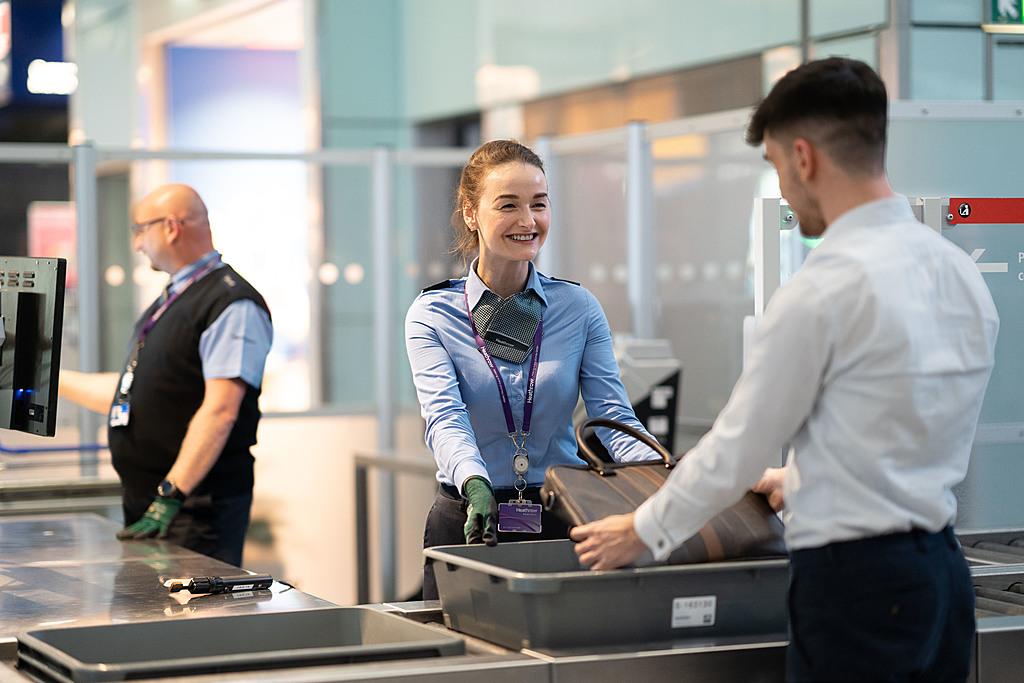- GMB and Unite join forces with the Insitute of Directors to highlight immediate dangers posed by connectivity crunch
- Research shows that failure to support Heathrow over the next ten years could cost 78,800 jobs from tourism, 55,300 jobs from foreign investment and 7,300 jobs from exports to emerging markets – 141,400 jobs in total
- By 2021 lost GDP could total £8.5 billion a year – £3.6 billion from tourism, £4.5 billion from foreign investment and £410 million from exports.
Britain could lose out on more than 140,000 jobs as a result of the Government’s failure to provide clear support for a UK hub airport, two of the UK’s leading trade unions have warned.
The warning follows the publication of new research by Oxford Economics, sponsored by Heathrow Airport, modelling the economic impact of the UK’s only hub airport at Heathrow being allowed to wither on the vine. It comes in the run-up to publication of the Government’s aviation white paper, which is expected to discuss long term options for aviation policy such as the development of a new hub in the Thames Estuary. It is expected that a Thames Estuary airport would take a minimum of 25 years to construct – during which time even more British jobs risk being permanently lost to other European hubs in Frankfurt, Amsterdam and Paris.
The GMB and Unite’s call to action was echoed by the Institute of Directors. The two trade unions join a growing coalition of business leaders highlighting the economic dangers of doing nothing to address Britain’s connectivity crunch before a long term solution is in place. Business leaders and trade unions are calling for the Government to do more to support Heathrow in the short and medium term to ensure British businesses can access world markets.
The Oxford Economics research looks at the economic implications if nothing is done to boost capacity between now and 2021, constraining Heathrow’s ability to meet growing demand and to act as Britain’s gateway to the world. The research finds that:
- Constraints on capacity at Heathrow will result in up to 5.8 million fewer international visitors to the UK from long haul destinations each year by 2021. This will result in £7.3 billion less spending each year. As a result, Britain will lose out on £3.6 billion in GDP and 78,800 jobs.
- Capacity constraints will cost the UK £4.5 billion in GDP from foreign investment by 2021, meaning a loss of 55,300 jobs.
- Taken together with research showing that capacity constraints at Heathrow will cost Britain £1.6bn in lost trade with emerging markets[1], Oxford Economics estimate that the UK could lose out on £8.5 billion in GDP and 141,400 in jobs by 2021.
Mick Rix, GMB National Officer for Aviation, said “It is plain daft to exclude the option of expanding Heathrow. Last autumn Government said it was looking at another airport hub in the South of England, but not at Heathrow. GMB consider that this is profoundly wrong and call on all political parties to keep every option on the table, including the issue of the third runway at Heathrow.
“Looking longer term, moving to a new hub location will devastate jobs in West London. However as this new research shows, there’s an immediate need to safeguard the jobs and GDP that Heathrow provides. The economic prosperity of the nation requires that a political decision be taken quickly that ensures a strong Heathrow as part of the UK’s aviation policy. At the same time, the billions that would be wasted building a new hub elsewhere in the region should instead be focused on much needed energy and transport infrastructure projects across the UK.”
Len McCluskey, Unite General Secretary, said: "It is madness to think that the UK can muddle on without a top quality international hub airport. Heathrow is perfectly positioned to fulfil that role and deliver all the associated economic advantages. Decisive action to maintain the airport's status is needed now. What is certain it that the country does not have the time nor the money to pursue vanity 'island airport' projects. Our economy desperately needs an airport infrastructure which is better than the patchwork provision we currently have around the capital.
"The only people to benefit from this lack of ambition for our airports are our global competitors. Thousands of jobs and our standing as a global trading nation demand urgency and strategy from the politicians. No more short-term fixes. Our politicians must think big and act in the national interest. We need an aviation strategy that acknowledges Heathrow as a hub, and we need it now."
Simon Walker, Director-General, Institute of Directors said: “It’s not enough for government to be telling the world that the UK is open for business. Actions speak far louder than words. The lamentable failure to increase airport capacity means that jobs are already being lost to our competitors overseas. Without immediate support for our hub airport and a swift decision on new capacity, job losses will only increase.”
Colin Matthews, CEO, BAA, said: “The centre of gravity in the world economy is shifting and we need to forge new links with emerging markets. Instead, we are edging towards a future cut off from some of the world’s most important markets, with Paris and Frankfurt already boasting more flights to the three largest cities in China than Heathrow, our only hub airport.
“These poor trade links are costing Britain jobs. Growth won’t wait. New routes from Europe to emerging markets are already being established at other European hubs. Britain needs the jobs and growth that new connections would bring.
“Jobs lost because of constraints on UK aviation won’t come back if a solution takes 25 years to arrive – they will be permanently lost to our European competitors. So whatever the long term answer may be on aviation, in the near term we also need a solution which builds new connections from the hub we have at Heathrow.”
Note to editors:
All statistics quoted are sourced from Oxford Economics, The value of aviation connectivity to the UK, March 2012 and Frontier Economics, Connecting for Growth, September 2011.
Methodology of Oxford Economics research
Oxford Economics was commissioned by Heathrow to quantify the economic impact on tourism, foreign direct investment and exports to emerging markets of a failure to provide the necessary capacity to meet growing demand for aviation. Oxford Economics compared two scenarios: first, if Heathrow’s capacity were to remain constrained as it is now, and second, if its operating capacity was not constrained and it was able to meet growing demand. Oxford Economics made projections for both scenarios in 2021. The scenarios were based on the same definitions used by Frontier Economics in its September 2011 report, Connecting for Growth.
The projections were calculated as follows:
- Tourism: Frontier Economics predict there will be 14.4m to 17.3m fewer long haul seats flown to/from Heathrow in 2021 if it is unable to undertake the investment it needs. Taking the midpoint of this range gives us a figure of 15.85 million foregone passenger journeys. According to the ONS (2011) Travel and Tourism Statistics and Oxford Economics' calculations UK outbound passengers currently account for approximately 2/3 of total long-haul air traffic flying to/from the UK. All flights to/from destinations outside Europe are considered long haul. Applying this share to the figure of 15.85 million means that there will be 5.8 million fewer tourists entering the UK via Heathrow in 2021 than would otherwise be the case. Average spend per long haul tourist is estimated using ONS (2011) International Passenger Survey data – grown to 2021 levels using Oxford Economics' forecasts for CPI inflation. This gives us total spend, which is converted to GDP using the ONS (2011) input-output table. The employment estimates are derived using the World Travel and Tourism Council's data on labour productivity in the travel and tourism sector in 2021.
- Exports to emerging markets: Frontier Economics estimate that the UK will earn £1.6 billion less in earnings from trade from key emerging markets in 2021 due to Heathrow being capacity constrained. Using the ratio of trade to GDP implied by the Frontier report, this translates to approximately £410 million less in GDP in 2021. To estimate the reduction in jobs from Heathrow being constrained, the loss in earnings is allocated to different product categories using the UK's export product split in 2010 (using data in the ONS [2011] Pink Book). The products categories are then mapped to industries and predictions for average productivity levels in each industry sector used to estimate the loss in employment.
- Foreign direct investment (FDI): The estimate of the impact on inward FDI draws on the British Chambers of Commerce (2009) study on the economic impact of hub airports. This reviews past studies on the responsiveness of investment and GDP to changes in air connectivity. One of the studies reviewed (IATA (2006)) suggests a 10% increase in air connectivity relative to GDP raises investment by 0.6%, which in turn leads to a 0.2% increase in GDP. The calculation applies Frontier Economics' (2011) mid-point estimate of the reduction in passenger numbers (43.3%) that will occur by 2021 if Heathrow is constrained to the IATA's (2006) estimate of the responsiveness of investment and GDP to air connectivity. The resulting percentage decline in GDP is then applied to Oxford Economics' Global Macroeconomic Model's (GMM) forecast for GDP in 2021 to get a figure of the absolute loss in economic output in 2021. The loss in employment from Heathrow being constrained is calculated by multiplying the predicted loss in GDP by Oxford Economics' GMM forecast for labour productivity in the UK in 2021.



